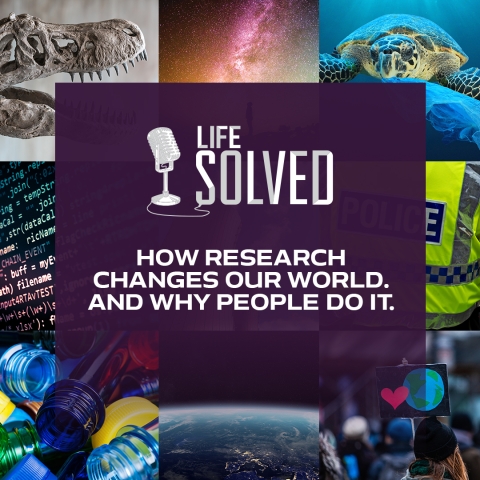Read the latest news from the University, including student successes and research breakthroughs, browse our calendar of upcoming events, listen to the latest podcast episodes, and read blogs from academics across our 5 faculties.
Got an enquiry? Contact our Press and Media team at pressoffice@port.ac.uk or by calling +44 (0)23 9284 2728, and our Events Team at events@port.ac.uk.

Explore our upcoming Undergraduate Open Days
There's no better way to get to know the University of Portsmouth and the city, than to come to see it for yourself. Come to one of our open experience days, and we'll help you explore our island city, and get to know what life as a student is like.
News
View all news
British Council launches international scholarship programme with University of Portsmouth

University of Portsmouth students create films showcasing local heritage and community stories

Investors punish companies that dodge tax a new study finds

University of Portsmouth partners with Ivy Academic Network in Pakistan Islamabad

University of Portsmouth hosts international Palaeontology event
Events
View all eventsJan 14 2026
Give Back, Grow Forward: Explore Local Charity Trustee Opportunities
Jan 15 2026
Football finance: Football's relationship with money
Jan 16 2026
So You Want a Career in Social Work? - Webinar
Blogs
View all blogs
Why mistletoe is thriving, even as its traditional orchards are lost

Completing the Journey: All Eight Industrial Strategy Sector Plans Reviewed

Google is relying on its own chips for its AI system Gemini. Here’s why that’s a seismic change for the industry

Drones have changed warfare. Two new weapons might be about alter its course again
Podcasts
We're developing our podcasts to bring you expert insight on topical issues, stories from our students and alumni, and University news. Find out more about our existing podcast series below.
Life Solved

Port Cities and Maritime Cultures Podcast

Featured research stories
New resource to help in the fight against climate change

Study suggests mild COVID-19 can have harmful effects on cardiovascular health

First ever sturgeon to be found in Africa

Webinars
Hear from our academics and experts directly from wherever in the world you are, by viewing one of our webinar series.
Getting Started Series
Our 'Getting Started' webinar series is designed to give you up-to-the-minute information, tips and guidance to help you get started with your uni application.

Media enquiries
Want an expert opinion on a story? Our press officers can put you in touch with the right person.
- Phone: +44 (0)23 9284 2728 (8.30am-5.30pm)
- Email: pressoffice@port.ac.uk
For urgent, out-of-hours media enquiries, call +44 (0)7594 502 933.
Please do not use the out-of-hours media number for enquiries about coronavirus. Please use the University Coronavirus Information line +44 (0)23 9284 5588.


